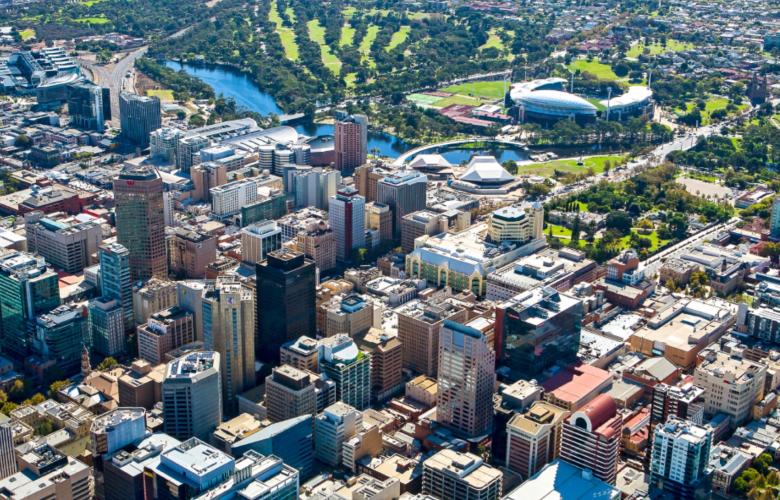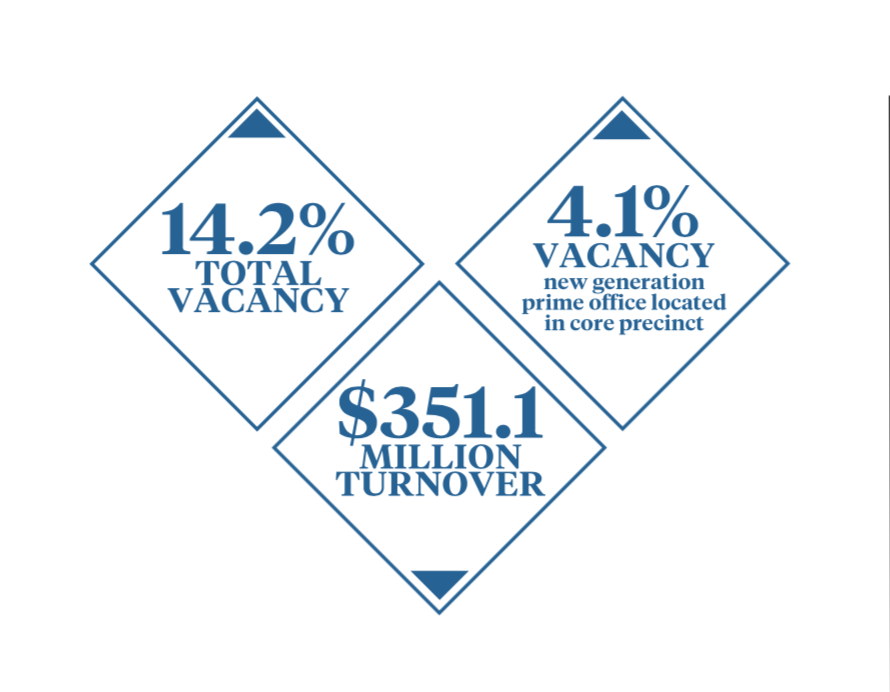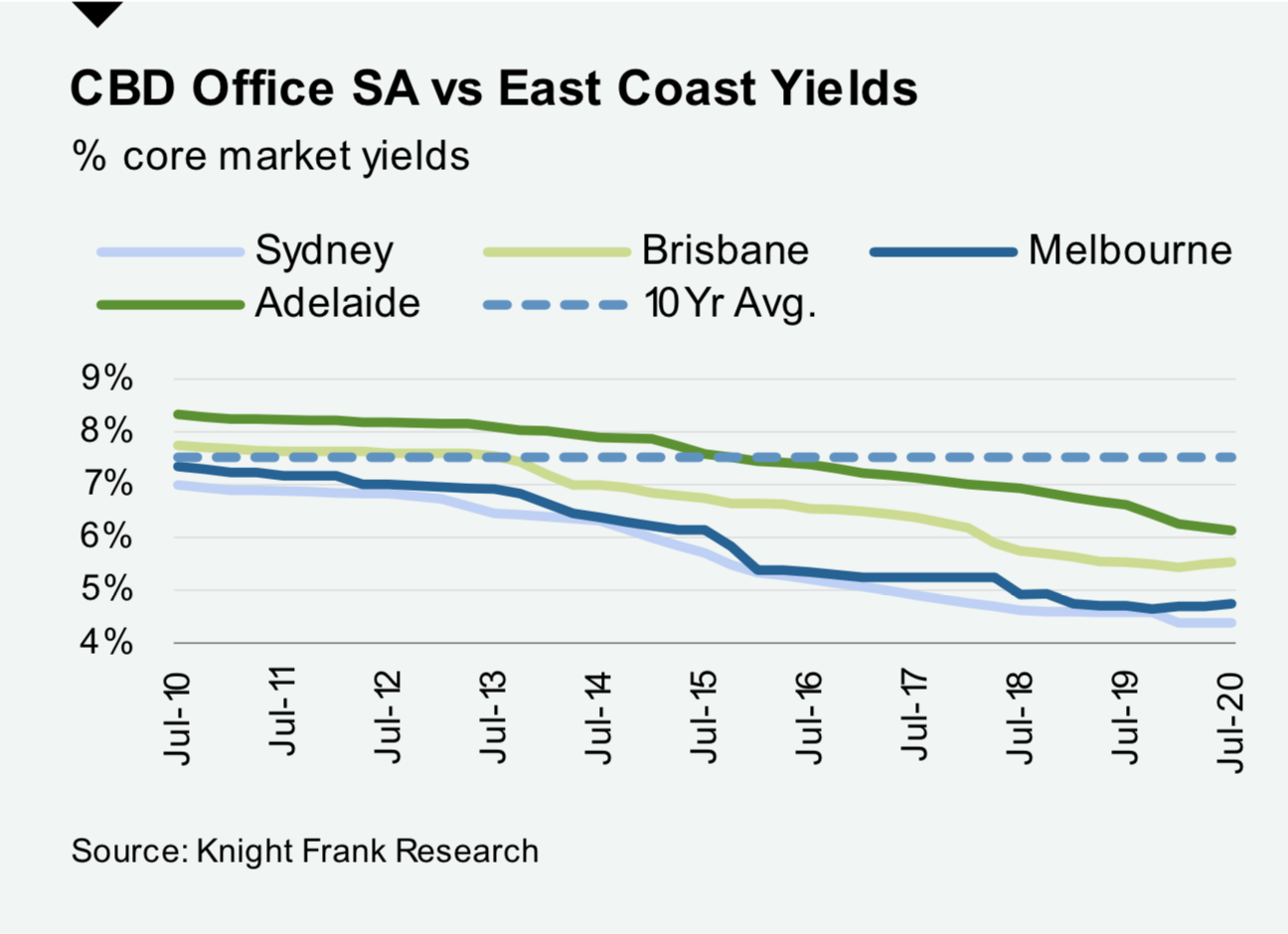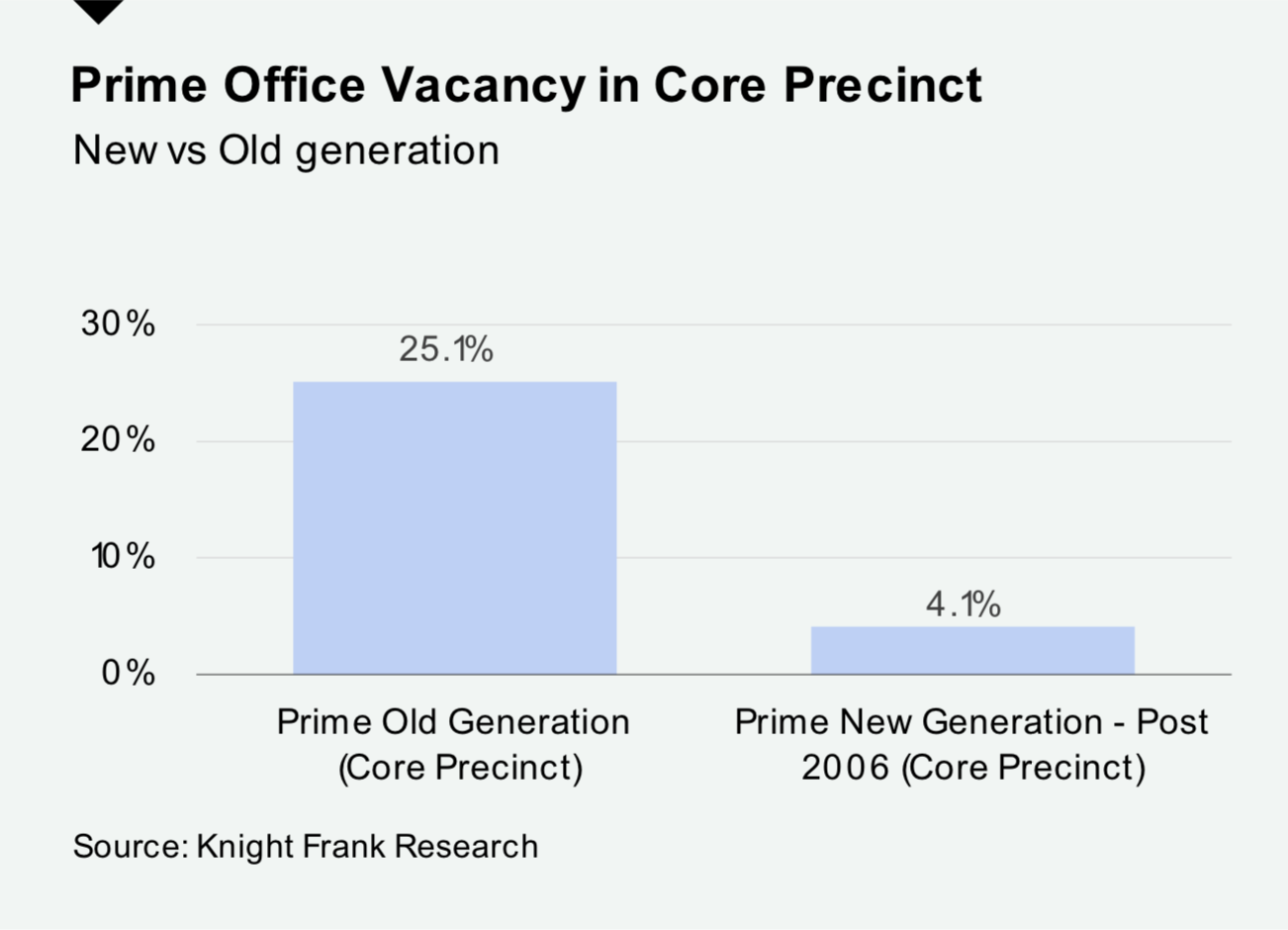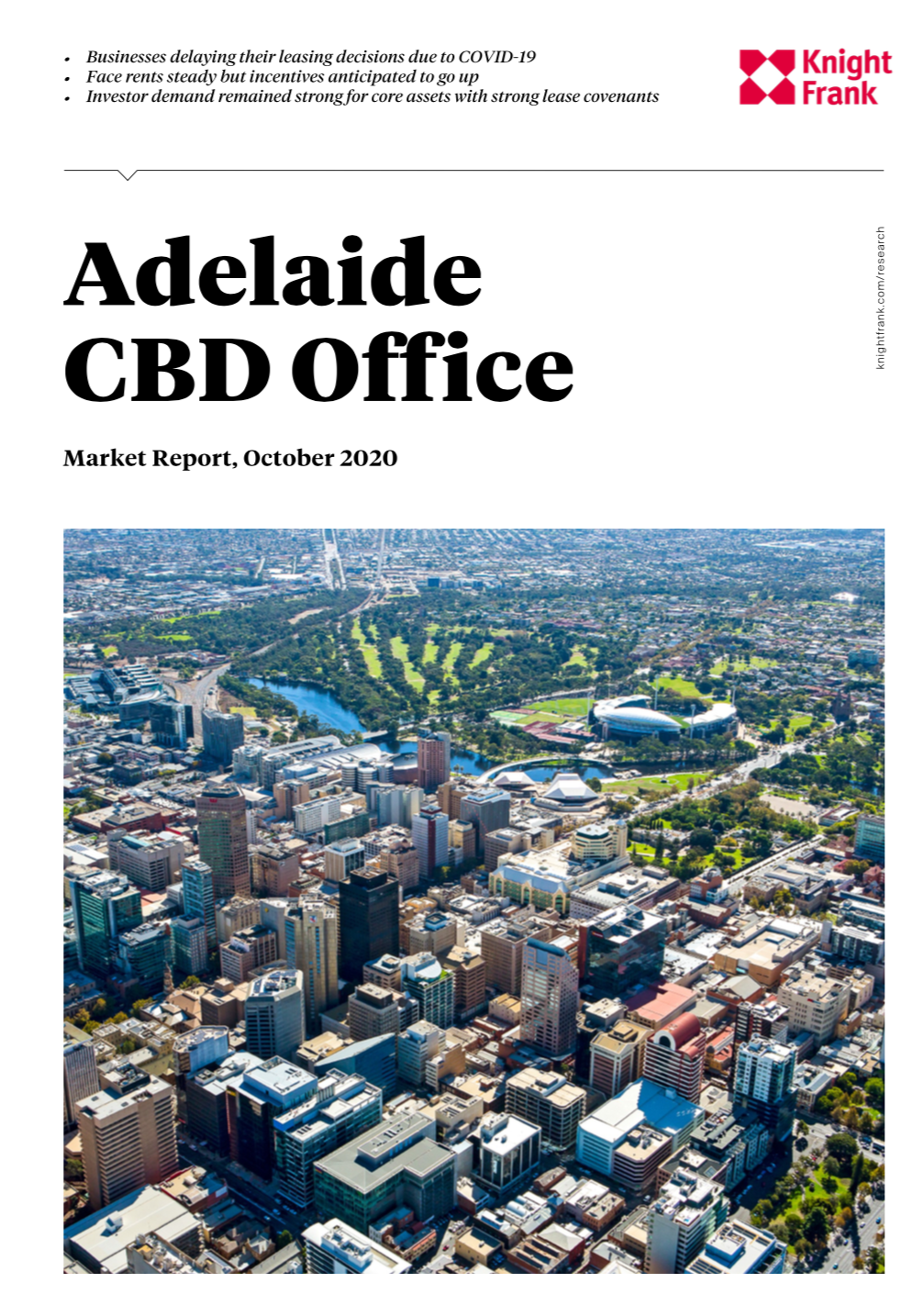Demand high for strong core office assets in Adelaide CBD despite COVID-19 - Knight Frank report
Contact
Demand high for strong core office assets in Adelaide CBD despite COVID-19 - Knight Frank report
Adelaide’s CBD office market has been disrupted by COVID-19, but core assets with strong lease covenants remain highly sought after in the local market, according to the latest research from Knight Frank.
Activity in Adelaide’s CBD office market has been disrupted by COVID-19, but core assets with strong lease covenants remain highly sought after in the local market, according to the latest research from Knight Frank.
The Knight Frank Adelaide CBD Office Market Report found sales activity had slowed during the pandemic, with the year-to-date total transaction volumes of $351.05 million for properties in Adelaide’s CBD (above $10 million) 21 per cent lower than the same time last year.
Pricing, however, has been resilient and appears to be unaffected, with yields compressing.
At a glance:
- The report found activity in Adelaide’s CBD office market had been disrupted by COVID-19 but core assets with strong lease covenants remain highly sought after
- While total transaction volumes for the calendar year are down by 21% to $351.05 million, pricing remains resilient and yields are compressing
- Leasing activity in Adelaide’s CBD office market remains subdued with businesses deferring their relocation and expansion decisions
- Tenant demand has been focused on new generation prime office buildings in a flight to quality
Adelaide CBD prime yields range from 5.5% to 6.75%, while secondary yields range from 6.75% to 8.25%. On average, prime yields edged in by 14 basis points, from 6.26% to 6.13% in the six months to July 2020, while secondary yields firmed by six basis points, from 7.95% to 7.88%.
Knight Frank Partner and Head of Institutional Sales in Victoria and SA Guy Bennett said the outlook for the investment market in the Adelaide CBD office market remains positive, with investors continuing to seek long WALE assets with strong lease covenants.
“As a clear example of the strength in demand for prime assets, in the middle of a global pandemic Knight Frank sold an office building at 50 Flinders Streets off market for $174.65 million, setting a new price record,” he said.
“South Australia is seen as a safe haven for investment, reflecting the broader economic response towards the COVID-19 outbreak.
“The value proposition and attractive yields in South Australia, coupled with low interest rates and stamp duty abolition on commercial property continue to attract investors.
“Currently average prime yields across the eastern seaboard are generally in excess of 100 to 175 basis points firmer than in Adelaide.
“But demand for CBD office assets has led average yields for prime office buildings to continue to firm, and while strong demand for quality assets and the historically low cost of funds retains in force, there is not likely to be any softening bias in the short term.”
Knight Frank Partner and Head of Office Leasing SA Martin Potter said leasing activity in Adelaide’s CBD office market had been on an upward demand trend prior to COVID-19, but since the pandemic had remained subdued, with the majority of businesses deferring their relocation and expansion decisions given current economic uncertainty.
“The level of enquiry and activity from small or private businesses has remained steady, however, albeit lower than pre COVID-19.
“Tenants with an upcoming lease expiry are leaning towards renewing or extending their existing lease rather than relocating.
“The majority of tenant demand is concentrated in prime stock reflecting a continuing ‘flight to quality’ by tenants.
“More specifically, tenant demand has been focused on new generation prime office buildings defined as those that were constructed post 2006.”
The Knight Frank report found as at July 2020, the total vacancy for new generation prime office buildings in the core precinct was approximately 4.1%, while older prime office buildings have a vacancy rate of around 25.1%.
“The demand for higher quality office space will likely impact the secondary market, with owners facing amplified requirements to reposition their assets through refurbishments and upgrades in order to retain appeal,” said Knight Frank Research Analyst Yee Ng.
“The Adelaide CBD vacancy rate overall has remained steady despite COVID-19, increasing by 0.2% to 14.2% in July 2020, with the increase mainly attributed to a supply increase resulting from refurbishments of B-grade buildings.
“While many eastern states have experienced a spike in sublease vacancy, the Adelaide CBD office market remained resilient with no material volumes of sublease space brought to the market.
“However vacancy is likely to increase given the number of new major developments scheduled for completion over the short to medium term are not likely to be met with significant pressure in leasing demand.
“An expected significant supply increase in 2023 is also anticipated to have a material impact on the Adelaide CBD vacancy rate as large volumes of backfill space in secondary buildings will likely be brought to the market.”
The Knight Frank Adelaide CBD Office Market Report – September 2020 found face rents in Adelaide’s CBD office market remained steady and while there has not been any weight of evidence to show incentives had increased as a result of COVID-19, with leasing demand tipped to remain subdued and landlords expected to compete over limited requirements for office space, it is anticipated they will increase in the coming 12 months.
“Average prime incentives currently stand at circa 31.4%, however the weaker demand in the leasing market is likely to place some upward pressure on incentives over the next 12 months,” said Mr Ng.
For more information contact Guy Bennett, Martin Potter and Yee Ng via the contact form below.
To view or download the report click here.
Similar to this:
Adelaide's NAB House sold to Singaporean family for $47.2 million through Knight Frank
Economic crisis casts a shadow over Australia’s CBD office markets - JLL
Quintessential Equity complete $8 million refurbishment of Adelaide CBD office building



